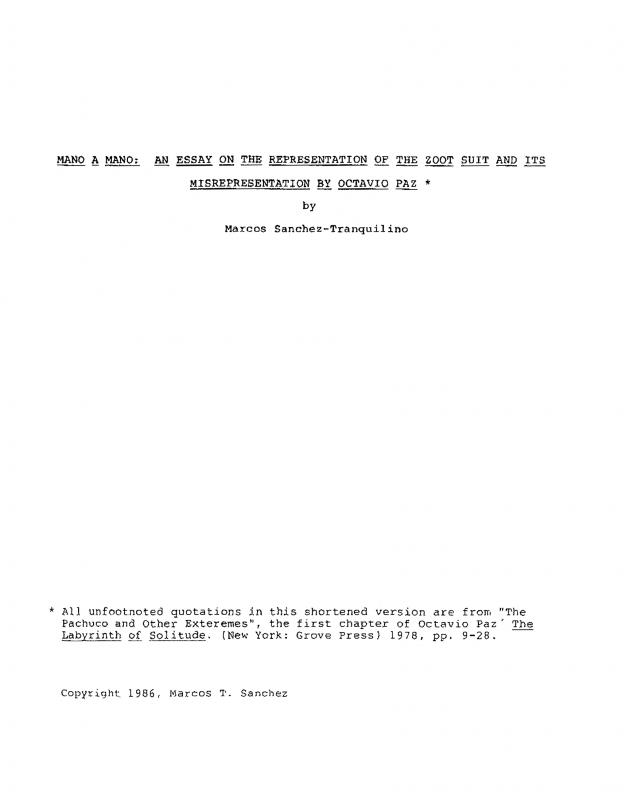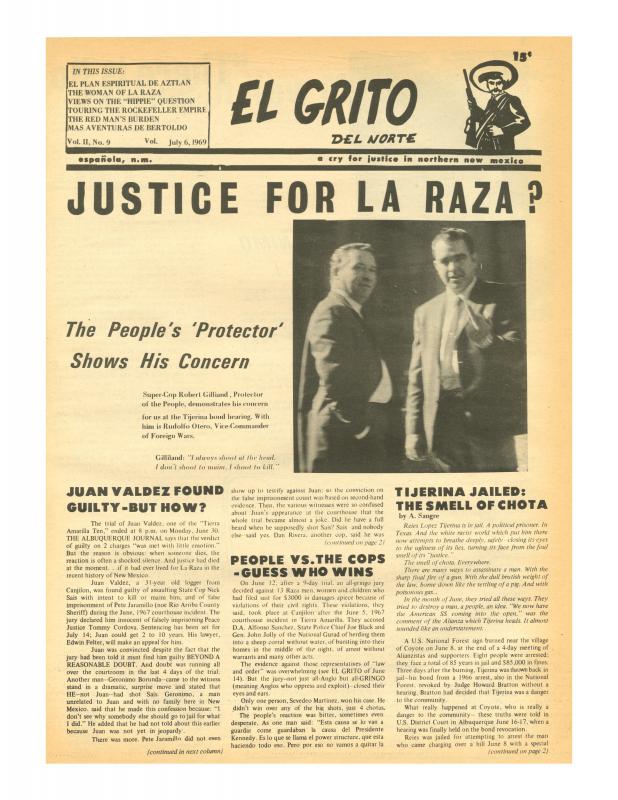In “The Pachuco and Other Extremes,” the Mexican poet, writer, and diplomat Octavio Paz grapples with the issues related to the search for the national identity in post-revolutionary Mexico and, more broadly, the existential relationship of individuals to the universe. Comparing the development of nations to the psychological development of individuals, Paz considers self-discovery to be a path toward realization of one’s uniqueness and singularity. Painting North Americans and Mexicans as polar opposites in terms of social attitudes and values, Paz concludes that neither of the two nations has accomplished a kind of reconciliation between “men” and the universe that he considers desirable. Yet, between the two extremes that the North Americans and the Mexicans represent, Paz is confounded by the figure of the rebellious pachuco (a young man of Mexican origin living in the United States), who defies integration into the U.S. society and stubbornly affirms his own distinctness. Paz gives a lengthy description of the key traits of the pachuco, including his intense self-fashioning. The indeterminacy of the pachuco in terms of national and cultural affiliation constitutes for Paz “a suicidal gesture.” In the life of the pachuco, according to Paz, there is no trace of language, religion, customs, or beliefs of his Mexican heritage.


